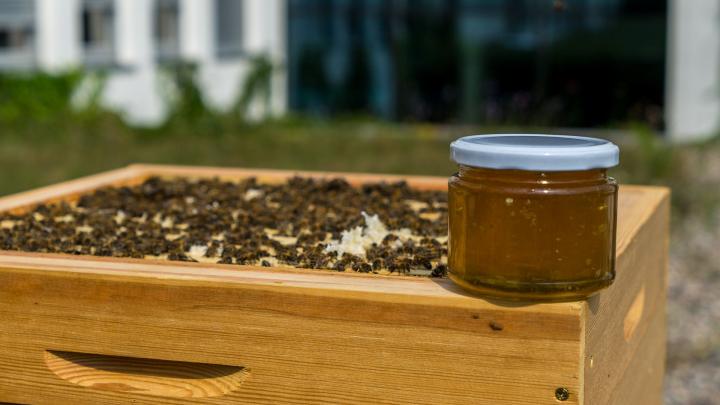Yeah. 30 kg of honey was collected during the first honey harvest from Białystok University apiary. The apiary consists of five cells. They stand on the roof of a college on campus. Honey is a promotion of the university, as well as an ecological and healthy lifestyle.
The beehives were established in May of this year. The university’s apiary is an initiative of the staff of the Faculty of Biology, which is located on the campus of Białystok University located on the outskirts of the city. The apiary is located on the surface of the kidney. Each cell runs from 30 to 40 thousand. bees;
“From start to finish, it is university honey, and we are very happy with it. The bees on our campus feel great, they have very good conditions to live and work. And next to it is the Zwierzyniecki Forest, we have flower meadows and a lot of green space. We will definitely develop a honey project ”- Said the President of Bialystok University, Prof. Robert Ciborovsky, who participated in the honey harvest.
Mikowaj Mack, who looks after the university apiary, believes that the honey is very tasty and versatile because it comes from maple, early linden, and various honey-bearing flowers from nearby flower meadows. “And when the lindens bloom, we will again be able to pick up some honey from the bees” – added Mack.
Honey from the apiary – as announced by the university – will not be offered for sale, but will be used to promote Bialystok University and an ecological and healthy lifestyle.
According to the Dean of the College of Biology, Dr. Piotr Zieliński, the apiary also has an educational purpose. “We want students to have the opportunity to see how it is built, how bees work first-hand. We also plan to organize workshops for beekeepers and exchange ideas among experienced apiary owners” – he added.
For two years there was also a municipal apiary in Białystok, which is located near the city center, on the banks of the Biawa River, among flower meadows and sunflower fields. It consisted of seven cells. Last year, we were able to collect about 100 kg of honey.
As part of a pollinator protection project, the city has also established a place for wild bees. In the Zwierzyniec forest, two beehives were created, and a hive was created in the tree, in a pine trunk.
PAP – Science in Poland, Sylwia Wieczeryńska
SWI / EKR /







